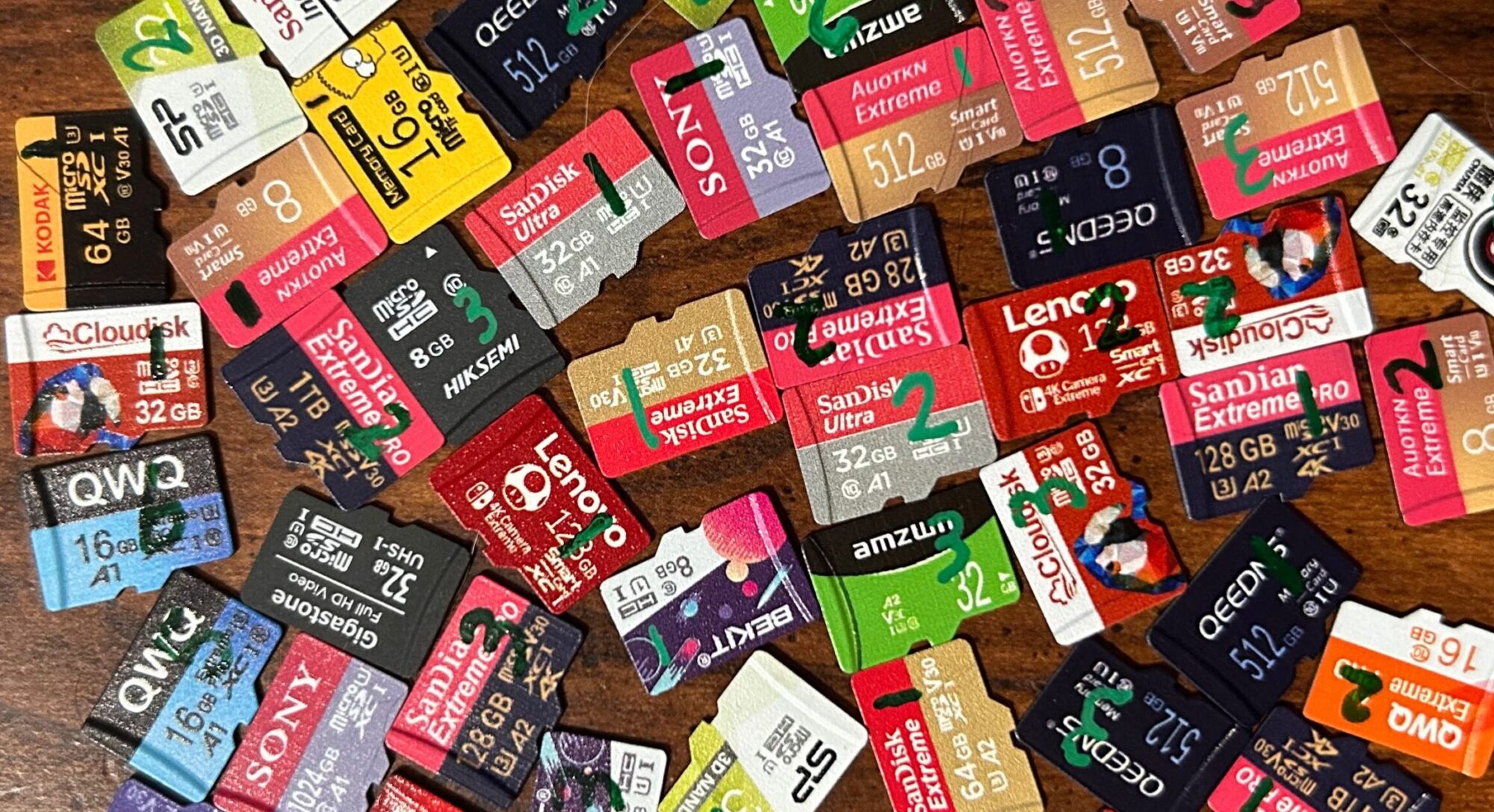Samsung is a pretty well known name in the electronics industry, and flash memory is no exception — they’re one of the few companies that owns and operates their own silicon foundries.
I purchased this model because I wanted to have a few legitimately obtained, name brand cards in my collection to compare the AliExpress samples to.
One thing of consequence that I’ll note: of the brands I’ve evaluated so far, Samsung is the name brand whose flash was neither fake nor skimpy. It seems that if you buy a 64GB Samsung card, you get at least 64GB of space. Many of the other name brands — including Kingston, Kioxia, Lexar, and SanDisk — provided cards that were all skimpy, so I was pleasantly surprised to see that Samsung’s cards were not.
The package advertises that this card gets transfer speeds of “up to 130MB/s”. Of course, it doesn’t specify whether that’s referring to read speeds or write speeds, but I think it’s pretty obvious (to me, at least) that it’s referring to read speeds. It managed to meet that expectation — and even go a little bit beyond it. It also did well in random read speeds, scoring in the top 5% of all the cards I’ve tested (as of the time of this writing) — although write speeds were a little more disappointing.
These cards bear the U1, V10, and A1 marks. (The package also bears the Class 10 mark, although this mark does not appear on the cards themselves.) Performance was good enough to qualify for the Class 10, U1, and V10 marks, but not good enough for the A1 mark. However, I’ll throw in my standard disclaimer — my performance testing methods do not align with those prescribed by the SD standard. It’s possible that these cards would have done better had they been tested under proper conditions.
On the endurance testing front:
- Sample #1 has survived 6,951 read/write cycles and has not yet experienced any errors.
- Sample #2’s first error was a four-sector wide address decoding error during round 725; it has survived 5,712 read/write cycles in total so far.
- Sample #3 experienced a 6,400-sector wide data verification error during its very first round of endurance testing. It has survived 5,678 read/write cycles in total so far.
June 22, 2025 (current number of read/write cycles is updated automatically every hour)

